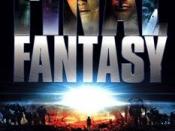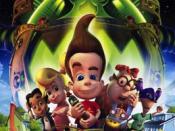Films are one of the most popular media in the modern world, watched by hundreds of millions of people all around the world. Films began in the late 19th century as a technological novelty, transferring to a new means of presentation and distribution an older tradition of "entertainment, offering stories, spectacles, music, drama, humour and technical tricks for popular consumption." (McQuail, 1983) And, as with any popular media, people began to talk and write about it, and film theory arose from these writings.
Why the need for film theory? Because in watching a film, the spectator is not merely a passive receptacle being filled with the film's meaning, but is engaged in a series of interpretations which depend on a whole set of background beliefs and without which the film would not make sense. On the basis of such beliefs or theories, the spectator sees faces, telephones, desert landscapes rather than patches of colours, ascribes motives to characters, judges certain actions as good and others as bad, decides that this film is realistic and that one is not; distinguishes the happy from the unhappy ending, and so on.
The need to understand the factors of perspective and interpretation gave rise to film theory. Film theory is a study of the essence and the meaning of films, as opposed to film critics, who evaluate films based on their feelings towards the films. Film theory, by its very nature, focuses on the meanings behind the film itself, and has provided us with several conceptual frameworks from which to analyse the film's narrative structure, the role of actors in films, the role of audiences or spectators in films and the element of reality and fiction in films just to name a few. Autuerism, feminism, surrealism, deconstruction and formalism are just some of the...


